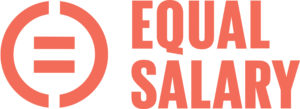Moving on from #ChooseToChallenge for International Women’s Day, what have you done to challenge gender bias since? How can you start to take action?
You may feel powerless as an individual in your organisation, especially if management refuses to take the issue seriously. So what CAN you do to make a difference?
Despite the best intentions of organisations that adopt an inclusive and gender-equal standpoint, there can be instances when the ideology doesn’t translate into affirmative action. This is often the case in organisations that don’t have someone whose role is to put the agenda into practice, or there is no upward pressure from employees.
Everyone has a part to play
In our IWD article about #ChoosetoChallenge, we explored the idea that everyone has a part to play in the fight for gender parity.
We all have it in our power to call out instances of inequality, however small they may seem. We are all able to assess how our actions can unwittingly enable a biased work environment.
The message is simple: a collective approach can make for a quicker outcome.
Of course, the traditional roles of women in the home and the workplace are so ingrained in our psyche that it is a considerable undertaking to shift perceptions. According to the Implicit Association Test conducted by Harvard University, 76% of people still readily associate men with ‘career’ and women with ‘family’.
When seeking a promotion, a woman may be labelled as ‘overly ambitious’ or lacking in leadership qualities. In contrast, a man is more likely to be seen as ‘driven’ and an effective leader, despite turning out the same performance results.
Getting your voice heard as a woman in the workplace can be hard work. According to LeanIn.org, men interrupt women three times more often than they interrupt other men. Being on the receiving end of this form of bias (whether unconscious or not) is not only demoralising but can actively harm women’s career progression as they are not perceived as critical contributors and, over time, lose confidence in their abilities.
What can you do as an employee?
If you are in a situation where a female colleague has been interrupted or spoken over, don’t be passive. Ask to hear more about their idea or amplify their contribution. Just by saying, “[name] raised an important point, I think we should explore this further before moving on,” you verbalise your part in readdressing the gender imbalance.
Combatting attribution bias instances when they arise is a simple yet effective step in creating a culture of inclusivity. Additionally, there are performance benefits in harnessing the female perspective. According to Lean In, “Teams that foster diverse points of view often have better ideas and get more done”.
A post-pandemic hurdle now presents itself, however. As many organisations have become more accepting of remote working, the mission of a collective movement for change is more challenging. The benefits of a remote working culture have numerous positives for our work-life balance, but what is often overlooked in the broader narrative of gender parity is how remote working will close the gap between men and women.
As ‘around the table’ meetings and informal chats in the office have been replaced by virtual meetings, women’s opportunities to voice their ideas and subtly influence an outcome are more challenging to come by.
The by-chance informal conversation with a manager or champion in the office lift or by the water cooler isn’t available to a remote workforce. Body language doesn’t always translate very well in a virtual world – so the cues given by someone who would like to speak but is finding it difficult to find a gap in the flow of conversation can be easily missed.
As a meeting leader, ask for comments and input in a structured way such as ‘going around the (virtual) table’ or inviting female individuals to contribute. Create breakout rooms for brainstorming and keep the groups small so that everyone feels comfortable to use their voice.
As a colleague, amplify good ideas that female colleagues make. Make sure the correct people are attributed and question colleagues who express an opinion that demonstrates gender bias.
As an organisation, one of the most effective markers of a solid gender equality mission put into practice is to pay men and women the same salary for doing the same job.
Get your organisation EQUAL-SALARY Certified
If you think that your organisation could benefit from demonstrating its commitment to closing the gender pay gap, you can email your HR department with details of the EQUAL-SALARY certification.
Simply click on the ‘SHARE WITH YOUR HR TEAM’ button on our Get Involved page and use the email template to explain the benefits of an EQUAL-SALARY certification.
—————————–
A key strategy in achieving true gender equality is to take deliberate steps to close the gender pay gap. Not only is this the right thing to do but it will benefit organisations through increased staff retention, and morale.
The EQUAL-SALARY certification enables organisations to demonstrate that they pay their female and male employees equally for the same job, or for a job of the same value. EQUAL-SALARY is open to all industries in all countries.
If you want to get EQUAL-SALARY certified, join the cause, become an ambassador or would just like to learn more, please get in touch.



